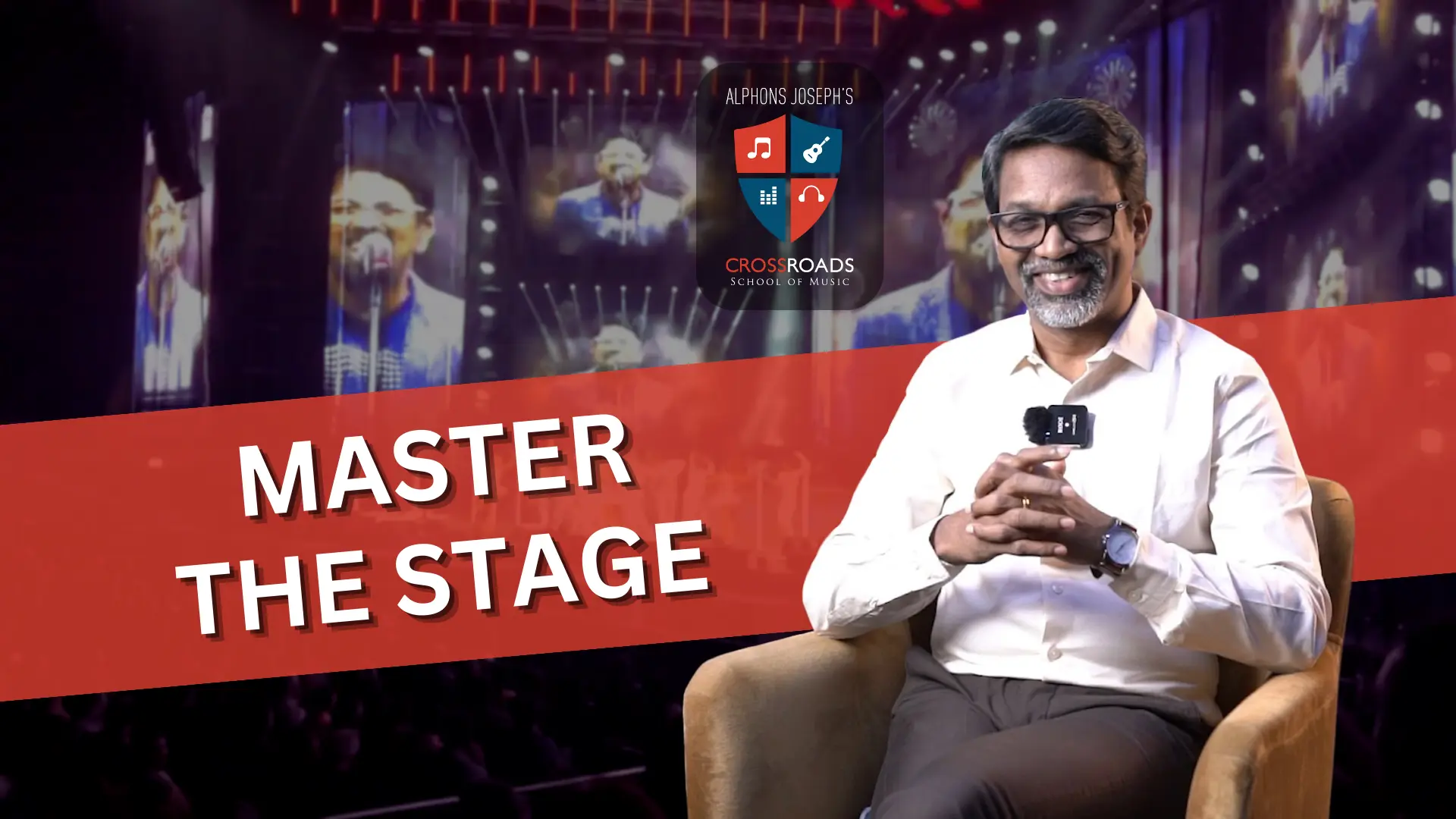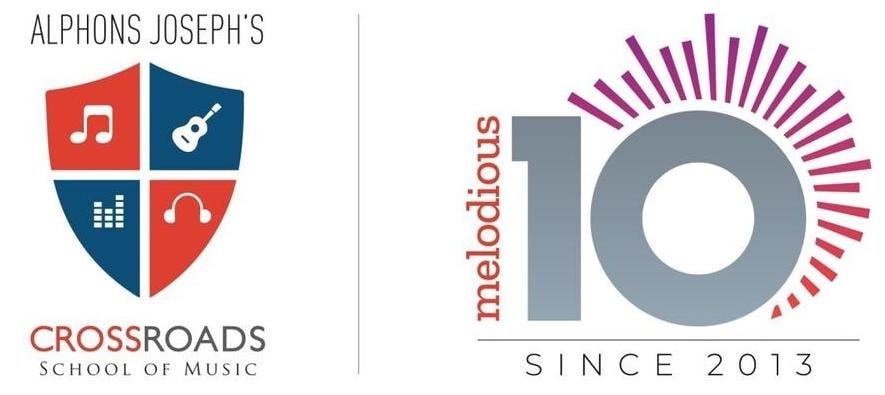Playing music in front of an audience can be both thrilling and terrifying.
Many musicians, from beginners to seasoned experts, have stage fright, which can impair their performance and overall musical journey. However, there are effective ideas and approaches that can help musicians overcome stage anxiety and develop confidence on stage. Understanding and adopting these ten steps can help musicians improve their performance, engage listeners, and develop a strong, confident presence in the music industry.
Secret 1: Learn What Makes You Nervous Before a Performance
Fear of criticism, self-doubt, and the need to perform flawlessly are frequent causes of stage fright, which affects musicians of all skill levels. Physical symptoms like racing heart, sweating palms, and trembling might accompany the mental anguish that results from this condition. Musicians can take steps toward developing efficient tactics for dealing with performance anxiety by first gaining a knowledge of the psychological causes of stage fright.
Here’s how to go about it –
- Maintain a journal to figure out why you become nervous before shows and second-guess yourself during them.
- To better understand how your mind and body react to pressure, try practicing mindfulness meditation.
- Performers might benefit from hearing from their peers about how they overcame stage fear by having frank discussions about their own experiences.
- Read up on performance psychology and other self-help materials to learn more about the mental components of performing on stage.
- Consult with a licensed therapist or counselor who specializes in performance anxiety to create a unique plan for dealing with stress.
Secret 2: Preparation is key
The key to overcoming performance anxiety and boosting self-assurance is thorough pre-show preparation. Not only should you practice the music until it’s perfect, but you should also study the performance space, the equipment you’ll need, and any potential problems that could develop. When a musician is well-prepared, they have a greater sense of mastery and confidence, which results in a more enjoyable and effective performance.
A few tips to guide your preparation –
- Make a plan for your preparation that includes clear objectives and benchmarks for your practice sessions.
- To be prepared for any problems that may arise, you should investigate the venue’s acoustics, stage design, and technical resources.
- Work with a teacher or peer group to create simulated performance situations and receive helpful criticism.
- If you want to improve your technical and expressive abilities, recording your practice sessions and performances will help you do it in an objective manner.
- Include mental rehearsals of the entire performance, from the first notes to the final bow, as part of your regular practice regimen to help you feel more comfortable and confident on stage.
Secret 3: Hone your On-stage Performance Skills
The best way for musicians to gain self-assurance and hone their stage presence is to incorporate performance skills into their daily practice sessions. The development of a diverse and interesting performance style can be aided by experimenting with various performance styles, taking part in group performances, and receiving constructive criticism from mentors and peers.
To increase your artistic range and stage presence, here’s what you can do –
- Try performing in a variety of diverse styles, such as classical, modern, and experimental.
- Take in live concerts and watch your favorite artists to pick up tips on performance, stage presence, and fan interaction.
- If you want to be more spontaneous and freer with your music, participate in music workshops and group jam sessions.
- Improve your stage presence by working with theater professionals or performance coaches to hone your body language, gestures, and facial expressions.
- Seek out mentorship from seasoned musicians to gain one-on-one instruction in creating a compelling performance style that matches your individual artistic expression.
Secret 4: Use Visualization to Your Advantage
Musicians can benefit greatly from the use of visualization to reduce their stage fright and develop a calm, concentrated state of mind prior to performances. They can improve their performance quality and stage presence by practicing positive mental imagery of successful performances and appreciative audience responses.
Follow these tips –
- Make sure you have a quiet, undistracted place to visualize in order to have a productive mental rehearsal.
- To better prepare for a performance, you should try visualizing yourself in a setting that is as close to the real thing as possible.
- During visualization exercises, write down positive affirmations and performance goals in order to reinforce a confident and self-assured frame of mind.
- Imagine the weight of the instrument in your hands, the sound of the song, and the excitement of the crowd to create a powerful mental image during visualization.
- Complement your visualization exercises with guided meditation sessions on performance confidence and overcoming stage fear to boost your emotional well-being.
Secret 5: Accept the Power of Anxiety
A musician’s performance can benefit from nervous energy if it is used constructively. Finding effective ways to channel and direct this vitality can help musicians craft performances that truly move their listeners.
Here’s what to do –
- To keep your heart rate in check and your anxiety in check before performances, try deep diaphragmatic breathing and alternate nostril breathing.
- Physical warm-up practices like stretching, yoga, or mild workouts can help you feel more limber and refreshed by relieving tension in your muscles.
- Create a safe space to talk to other performers about your worries and learn how they cope with their own performance nervousness.
- To improve your ability to respond to changes on the fly during live performances, try incorporating improvised and spontaneous elements into your regular practice sessions.
- Reflect on your performance afterward to pinpoint instances in which you channeled your nerves into a dynamic and engaging musical expression, so building on your past successes and boosting your confidence.
Secret 6: Train Yourself to Be Kind to Yourself
Self-compassion is an important skill for musicians who want to stay resilient and upbeat throughout their careers. Musicians can improve their mental health and deal with the challenges of performance anxiety with more confidence if they are kind and understanding to themselves.
Try these tips –
- Replace self-criticism with daily affirmations and self-compassion.
- Establish a self-care routine, including nature walks and creative activities.
- Attend workshops on emotional resilience and develop healthy coping mechanisms.
- Maintain a reflective journal to acknowledge achievements and practice self-compassion.
- Form a musician support group to prioritize emotional well-being and mutual encouragement.
Secret 7: Tune in to The Tunes
By narrowing their attention on the music itself, performers can overcome their own doubts and fears, resulting in more genuine and moving performances. Musicians can create a meaningful connection with their art and their audience by exploring the subject tales and expressive capabilities of the musical compositions.
To encourage a multifaceted and comprehensive approach to musical interpretation and performance expression, you should
- Fully appreciate the musical works you perform and their creative heritage, by getting a thorough awareness of its historical context and cultural influences.
- Develop a rich and expressive performance style that reflects your artistic vision and emotional sincerity by playing around with different interpretations and musical phrasings.
- Work with musicologists or other scholars trained in music analysis in order to better understand the subtleties of the music’s composition and interpretation.
- Enhance your ability to appreciate the subtleties and emotional depth of musical compositions by engaging in active listening methods including critical reflection and in-depth music analysis.
- Take part in interdisciplinary workshops or artistic collaborations that investigate the interaction of music with other art forms like dance, theater, or visual arts.
Secret 8: Create a Pre-Show Ritual
Developing a ritual to follow before a performance can help performers get their minds and hearts in the right place. Performers can benefit from a pre-show ritual that includes physical warm-up exercises, voice skills, and relaxation strategies to get them fully prepared for their performance.
Here’s what you should include in your ritual –
- Prepare yourself physically and mentally for performances by creating a personalized checklist that includes vocal warm-up exercises, relaxation techniques, and mental focus strategies.
- Make sure the area before the performance is peaceful and pleasant by including things like low lighting, aromatic candles, and soft music.
- Work with a vocal coach or speech therapist to create a specialized vocal warm-up routine that improves vocal flexibility, resonance, and articulation.
- To calm nerves and keep a level head before taking the stage, try some meditation or mindfulness techniques like progressive muscle relaxation or guided imagery.
- Create a routine before a performance that consists of positive affirmations, visualization exercises, and empowering self-talk in order to build a sense of psychological preparation and artistic assurance through the reinforcement of a resilient and self-assured performance attitude.
Secret 9: Create a Helpful Community
Building a community of like-minded artists may be a great resource for musicians struggling with performance anxiety, offering them emotional support, guidance, and encouragement. Musicians can help one another develop professionally and personally by participating in peer mentoring programs, music therapy workshops, and other forms of collaborative learning.
Participate in open discussions, share personal experiences, and give mutual support within the worldwide music community by joining online forums and social media groups dedicated to artists’ wellbeing and mental health.
It may help to surround yourself with others who share your love of music and understand the struggles you face in the industry by attending music networking events, conferences, and seminars.
The local music community can benefit from its members working together on projects, performing in ensembles, and engaging the public through outreach programs.
Offer your time as a peer mentor or support group facilitator.
Develop musicians’ emotional fortitude, artistic development, and group-based learning skills in a safe and accepting setting by hosting music therapy workshops, group coaching sessions, or wellness retreats with these goals in mind.
Secret 10: Commit to Ongoing Education
To succeed and flourish as an artist, musicians must have a growth mentality and be willing to learn throughout their lives. Musicians can benefit from the ever-changing nature of the music industry by actively seeking opportunities to broaden their skill sets, seek out mentors, and engage in cross-disciplinary projects.
To broaden your horizons and hone your technical and theoretical skills as a musician, you should –
- Enroll in online courses, certificate programs, or degree courses in music performance, music theory, or music education.
- Seek out mentorship from established artists, industry experts, or music instructors to learn about the latest developments, best practices, and methods for advancing your career in the music business.
- Take part in interdisciplinary artistic partnerships, such as cross-genre music projects, multimedia performances, or digital content development.
- Participate in international music conferences, festivals, and other cultural gatherings to learn about and be inspired by the wide range of musical styles, cultural practices, and artistic partnerships that exist around the world.
By putting these strategies into action, musicians can beat stage fright and grow their confidence on stage. Through careful preparation, supportive friends, and never-ending learning, they can lay the groundwork for a strong and successful music career. These secrets are the key to unforgettable performances and long-lasting success in the music world.
Play on and prosper in the music industry!



